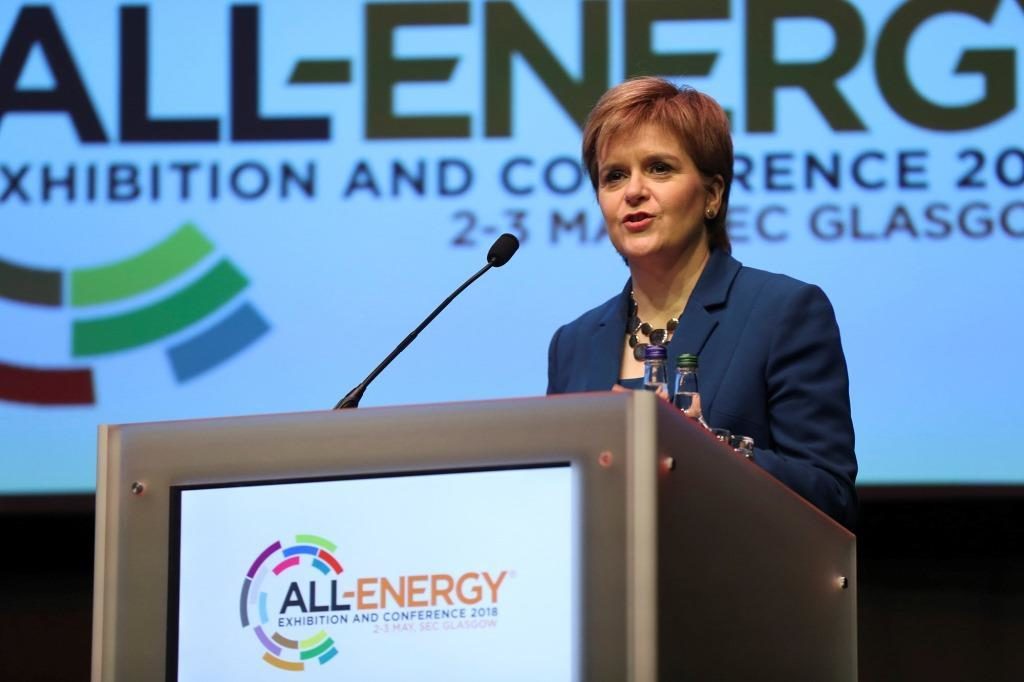
An independent Scotland should keep the pound during a transition period after any future vote to leave the Union, a new report commissioned by the SNP will say.
The Sustainable Growth Commission was set up to look at the future economic prospects of Scotland and First Minister Nicola Sturgeon has said it will “restart the debate” about independence.
The 354-page report, to be published in full on Friday, will outline that the pound should remain as Scotland’s currency for a period of time after any break from the Union.
There has been speculation the country would then move to a new Scottish version of Sterling.
Ahead of the 2014 independence referendum the SNP proposed a formal currency union with the rest of the UK.
On Tuesday, Governor of the Bank of England Mark Carney told the Treasury Select Committee a currency union was possible, but it would be for politicians to decide whether they want one.
The report will also set out proposals for a “Come to Scotland” package as part of efforts to boost the country’s population.
The document by former SNP MSP Andrew Wilson sets out how the country can use the “3 Ps” – population, participation and productivity – in a bid to grow the economy.
The long-awaited report will argue an independent Scotland could be among the most successful small economies in the world, providing an economic boost that is the equivalent of £4,100 per person.
There are currently about 429,000 people living in Scotland who were born outside of the UK – with this group contributing £1.3 billion to the public purse.
The report includes 30 recommendations on how to grow the economy, including introducing a new visa system for Scotland which would be in contrast to the “UK Tory Government’s hostile approach to migration”.
Demographic trends mean Scotland needs to attract people to boost its working-age population, with the report setting the goal of the country retaining an additional 5,000 overseas graduates each year – which could be worth £1.5 billion a year to the economy within a decade.
Speaking ahead of the publication of Scotland: A New Case For Optimism, Mr Wilson said: “We have a great opportunity for Scotland to strike a completely different tone on a vitally important area of economic policy – how we attract talent to our country.
“Growing our working population and, through it, our economy is perhaps the greatest national challenge we have – and is made even more urgent by Brexit and the threat it poses to our working-age population.”
Mr Wilson continued: “It is a fact that those born outside the UK who have made Scotland home for their businesses, their research or their families are significant net contributors to our economy and public finances – we need more of this.
“We also need more people from across the UK to consider the benefits of living and working here.
“Our package is designed to attract people to Scotland to study and to stay here, to build a career and a fulfilling future for themselves. We need investors, entrepreneurs and a skilled workforce to achieve our potential.”
The report is split into three sections, looking at Scotland’s opportunities for economic growth, public finances and the key issue of what currency an independent Scotland could use.
Scottish Conservative finance spokesman Murdo Fraser said: “Of course we want to attract the best and brightest to come and live and work in Scotland. But you don’t do that with high taxes and you don’t do it by trying to tear up the UK.
“You do it by growing Scotland’s economy – something the SNP government is failing to do, largely because it is spending so much of its time obsessing about independence.”
Scottish Labour leader Richard Leonard also hit out at the nationalists, saying: “The SNP government can attempt to reboot the case for independence as much as it likes.
The people of Scotland do not trust it and want a government focused on jobs, schools and hospitals instead.”
Scottish Lib Dem leader Willie Rennie called on the Scottish Government to “focus on driving positive change and improvement in public services and the economy” instead of pursuing “yet another divisive push for independence”.
But a Scottish Green spokesman said: “Many No voters in 2014 will no doubt be open to the case for independence, especially when this report is compared to the bleak, post-Brexit economic analysis papers, which we have seen, from the UK Government.”
He added: “While independence would give us a better chance of running a fairer economy, that shouldn’t stop us taking action right now.”
Recommended for you
